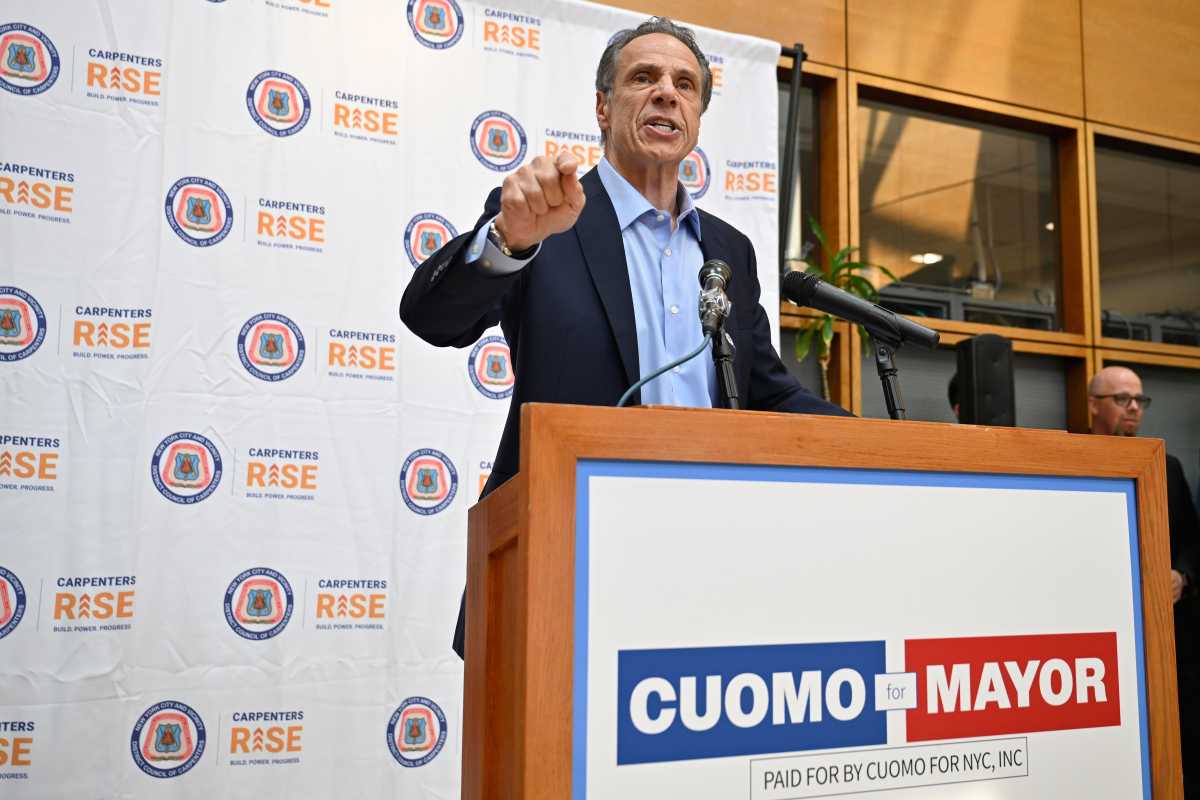It took just one day for the city to whip up a pomp-packed parade for the Super Bowl-winning New York Giants, but our courageous combat veterans who returned from Iraq two months ago have yet to see any sweet gratitude from the Big Apple for their supreme service.
Last week’s hoopla along the Canyon of Heroes was dejecting in more ways than one as we lauded gridiron gladiators who could have been more sporting by requesting that the troops who made it back alive — and those who didn’t — received their just dues first. Of course, Big Blue deserves all the praise it gets for its achievements on the gridiron, but not more so than the men and women who lost their limbs and lives in the line of duty.
St. Louis clearly thought so. It put New York City to shame last month by becoming the nation’s first city to host a troop-appreciation parade. A similar celebration here, followed by another one in 2014 after the troops come home from Afghanistan, would be a vital boost all around. It would help returning soldiers adapt to civilian life — a grim prospect that should be the priority of all lawmakers — while letting troops still overseas know that better days lie ahead.
A good start would be to honor our brave casualties in Iraq and Afghanistan: the 4,421 killed, the iava.org/files/IAVA_invisible_wounds_0.pdf“>40,000 service members who suffered injuries, the 300,000 soldiers who came away with post-traumatic syndrome and depression, and the 320,000 troops who suffered a traumatic brain injury. More American service members survived the Iraq War with irreversible injuries than any other armed conflict in history, thanks to high-tech armor.
For some, though, the scars are as indelible as they are invisible. Take the case of Sgt. First Class Alec Giess of the Oregon National Guard. He miraculously lived after his truck rolled over him while trying to dodge a land mine. The San Francisco Chronicle reported that Geiss’s wife noticed chilling changes in her husband after he returned home. He turned from a relaxed man into a hot-head who screamed at the cat, reviled crowds, couldn’t keep up with routines, and felt emotionally bereft.
“When my kids come and hug me, I don’t feel a thing,” Giess told the paper.
The uplifting stories are as heartbreaking. Purple Heart recipient Bryan Anderson, an army sergeant in Iraq, became that armed conflict’s fourth triple amputee after being injured by a roadside bomb, an ordeal which the wounded warrior used admirably to move forward. Anderson learned to walk again — plus snowboard, water-ski and rock climb, earning himself several gold medals along the way, and writing a book aptly titled, “No Turning Back.”
No amount of ticker-tape parades can ever hope to repay Giess, Anderson and the other champions who have defended our liberties on the front lines at horrifying personal cost. But the gesture would at least let them know that their suffering wasn’t in vain. Let the preparations begin immediately because a veteran commits suicide every 36 hours, and because our war heroes should never be made to feel like zeroes.
Sabruzzo@cnglocal.com
Read Shavana's Abruzzo's column every friday on BrooklynDaily.com.
























